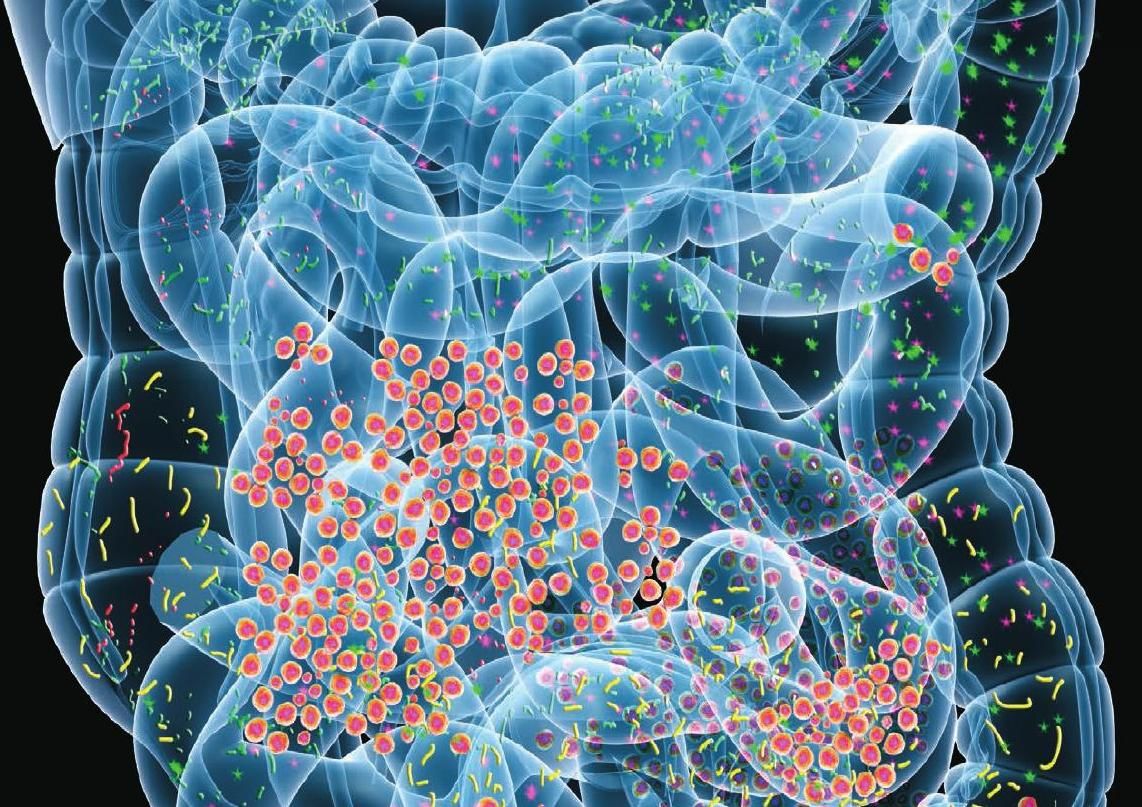It has scientifically been proven that we are not born alone, as we get colonized by innumerable number of bacteria at the time of birth and by adulthood we have trillions of bacteria colonizing every surface of the body. Human Microbiome Project (HMP) evidenced that there are approximately 10 times as many microorganisms within the gastro-intestinal (GI) tract of humans (approximately 100 trillion) as there are somatic cells within the body. Also, these microbes contain 3.3 million genes which are significantly higher than 23,000genes in human genome. Thus, it can be considered that we are more bacteria than human.
Particularly, the gut is inhabited by bacteria, yeasts, single-cell eukaryotes, viruses and small parasitic worms in varying proportions along the entire length of the GI tract but the majority is found within colon where they contribute to food remnants break down, immune system modulation, vitamins and amino acids synthesis, drugs metabolism etc. Phylogenetically, Bacteroidetes and Firmicutes together constitute 70–90% of the total gut bacterial community followed by Actinobacteria and Proteobacteria. Some of the bacterial genera commonly found in the human gut are Bifidobacterium, Lactobacillus, Bacteroides, Clostridium, Escherichia, Streptococcus and Ruminococcus. This microbial community/gut microbiota is dynamic and known to vary among individuals. The microbial composition of each individual depends on several factors such as age, ethnicity, diet, exposure to chemicals and many more as shown in figure 1. Despite this variation in taxa the microbial genome for basic or house-keeping metabolic activities are quite similar between individuals.
The increasing awareness of the role of the microbiota in maintaining healthis actually dragging interest of researchersas well as commercial investors. Human gut harbors both good (beneficial) bacteria as well as bad (pathogenic/harmful) bacteria. And their distribution and proportion basically influences the human health.It is evident that gut microbes can influence health by producing certain bioactive compounds (by good bacteria), but some may also produceharmful metabolites (toxins from bad bacteria). Intestinal epithelial barrier and immune defenses along the intestine together help prevent potentially harmful bacteria from causing damage to tissues. The maintenance of a diverse and thriving population of beneficial gut bacteria helps to limit the survival of harmful bacteria in gut either by competing for nutrients or for adhesion/colonization. Thereby, the maintenance of this homeostasis is important from health point of view. And, any disturbance in this homeostatic condition (known as dysbiosis) i.e. variation in microbial composition may lead to disease condition.
The link between thedysbiosis and diseases has been a mystery as to whether the gut microbiome has any impact on human health other than the basic roles. But, the advancement in technologies and human microbiome studies made it possible to unravel the unknown facts about the composition of gut microbiota, their dynamics and their relevance to human health.The gut microbiota as measurable biological indicators allows physicians to assess the health state of their patients, diagnose conditions and predict disease risks. Human Microbiome Project made two essential discoveries; (a) the gut microbiota can be regarded as an organ in itself, (b) the gut microbial communities provide a huge potential of new biomarkers.For example, a body mass index (BMI) or glucose levels are common biomarkers used for diagnosing or predicting metabolic disorders such as obesity, insulin resistance or type two diabetes (T2D), but now these ‘classical’ parameters can be joined by the gut microbiota composition as a new kind of biomarker. Researchers have reported the significant alteration in gut microbiota composition in patients with metabolic conditions. Besides, it must be considered that not all kinds of variations/alterations in microbial composition can be regarded as biomarkers of the disease condition.This is due to the fact that not only antibiotics but also other drugs might impact the gut microbiota. Thereby, gut microbiota examination may help to identify individuals at an early stage who are at risk to develop metabolic diseases. Hence, connecting classical clinical biomarkers with distinguishing different types of microbial composition may provide diagnostic patterns that allow selecting the kind of prevention or treatment which is best suited for the particular individual.
It hereby can be concluded that the microbial composition varies among the individuals and is well suited to serve as an indicator for a wide range of health conditions as the gut microbiota composition is closely linked to the food consumed as well as to several other factors affecting gastrointestinal health state. Recent findings also suggest that the gut microbiota composition can be even more than mere indicators. They can also be causal factors in the onset as well as in the management and treatment of disease conditions.
